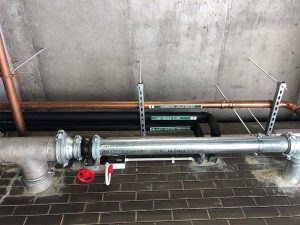Choosing the Right Plumber: A Comprehensive Guide
Finding a reliable plumber can be a daunting task, especially when faced with a plumbing emergency. However, making the right choice is crucial for ensuring that your plumbing issues are resolved efficiently and effectively. In this guide, we’ll explore the key factors to consider when choosing a plumber, the questions to ask, and tips for making an informed decision.
Understanding Your Plumbing Needs
Before you start searching for a plumber, it’s essential to understand your specific plumbing needs. Different plumbers may specialize in various areas, so knowing what you require can help narrow your options.
Common Plumbing Services
- Emergency Plumbing: Urgent repairs for burst pipes, overflowing toilets, and other critical issues.
- Drain Cleaning: Services to clear clogs and ensure proper drainage.
- Installation Services: Setting up new fixtures, appliances, or plumbing systems.
- Maintenance: Routine checks to prevent future issues.
Researching Potential Plumbers
Once you have a clear idea of your plumbing needs, the next step is to research potential plumbers. There are several avenues to explore when searching for qualified professionals.

Online Reviews and Ratings
Start by checking online reviews on platforms like Google, Yelp, and Angie’s List. Look for plumbers with consistently high ratings and positive feedback from customers. Pay attention to comments about their responsiveness, quality of work, and professionalism.
Ask for Recommendations
Word of mouth is a powerful tool. Ask friends, family, and neighbors for recommendations based on their experiences. Personal referrals can provide insights that online reviews may not capture.
Check Credentials
Ensure that the plumber you are considering is licensed and insured. A valid license indicates that they have met the necessary standards and regulations in your area. Insurance protects you from liability in case of accidents or damages during the job.
Evaluating Experience and Expertise
Experience matters in the plumbing industry. A plumber with a long track record is likely to have encountered various plumbing issues and developed effective solutions. https://supremeplumbingandwastewater.com.au/townsville-plumber/
Specialization Matters
Consider whether the plumber specializes in the type of work you need. Some may focus on residential plumbing, while others may have expertise in commercial plumbing or specific systems, such as sewer lines or gas fittings.
Certifications and Training
Look for additional certifications or training that may set a plumber apart. This can include training in advanced plumbing techniques, eco-friendly practices, or specialized systems. Such qualifications often indicate a commitment to ongoing education and quality service.
Requesting Estimates
Once you have a shortlist of potential plumbers, it’s time to request estimates. This step is crucial for understanding the costs involved and ensuring that you don’t encounter unexpected charges later on.
Get Multiple Quotes
Contact several plumbers to obtain quotes for your specific job. Make sure to provide detailed information about the work needed so they can give accurate estimates. Comparing multiple quotes can help you gauge the average cost and identify any outliers.
Understanding Pricing Structures
Plumbers may charge in different ways: hourly rates, flat fees, or per project. Make sure you understand how the plumber charges for their services. Clarify whether the estimate includes labor, materials, and any potential additional costs.
Assessing Customer Service
Good customer service is a hallmark of a reliable plumber. Pay attention to your interactions during the hiring process, as this can be indicative of the service you will receive.
Communication Skills
A plumber should be able to explain the issues clearly and provide recommendations without using excessive jargon. They should also be responsive to your questions and concerns. A good communicator can help build trust and ensure you feel informed throughout the process.
Availability and Response Time
In emergencies, a plumber’s availability is crucial. Ask about their response time for urgent issues. A plumber who offers 24/7 emergency services can provide peace of mind when plumbing disasters strike.
Checking References
Before making a final decision, don’t hesitate to ask for references from previous clients. Speaking with others who have used the plumber’s services can provide valuable insights into their reliability and quality of work.
Questions to Ask References
- How satisfied were you with the plumbing work?
- Did the plumber adhere to the estimated timeline and budget?
- Were there any follow-up issues after the job was completed?
Making the Final Decision
After thorough research and evaluations, it’s time to make your decision. Consider all the information you’ve gathered, including estimates, customer service, and references.
Trust Your Instincts
Sometimes, your gut feeling can play a significant role in your choice. If you feel uncomfortable or uncertain about a plumber, it may be best to continue your search.
Written Agreement
Once you’ve selected a plumber, ensure that you receive a written contract outlining the scope of work, estimated costs, and payment terms. A written agreement protects both you and the plumber and sets clear expectations for the job.
Conclusion
Choosing the right plumber is vital for maintaining a well-functioning plumbing system in your home. By understanding your needs, conducting thorough research, evaluating experience, and assessing customer service, you can make an informed decision. Remember, investing time in finding the right professional can save you money and stress in the long run.
By following the tips outlined in this guide, you can confidently select a plumber who meets your needs and provides quality service. Whether you’re facing an emergency or planning a renovation, the right plumber can make all the difference.
